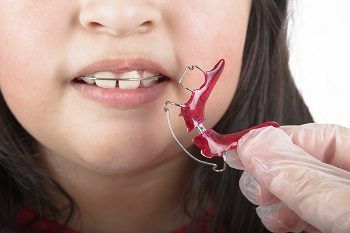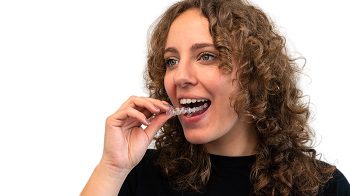Removable vs. Permanent Retainers: Pros and Cons
A retainer is a dental appliance that prevents your teeth from moving after removing the braces. Retainers take at least four to six months for your teeth's new position to become permanent. During this time, your teeth will attempt to return to their original position, known as relapse. A retainer, when used as directed, prevents this from happening.
Retainers are classified into two types: removable and permanent. Your orthodontist may advise you on one type, or you may recommend a removable retainer for your upper teeth and a permanent retainer for your lower teeth. Knowing the Pros and cons of Permanent and removable retainers is essential to deciding which is better for you. Moreover, your orthodontist will advise you on the best type based on your needs and any medical conditions you may have.
Pros and cons of Permanent and Removable Retainers
Pros of Permanent Retainers

- Because you don't have to put it on and take it off, keeping your teeth in place after your braces come off is more uncomplicated.
- No one else knows you have retainers as it's bonded behind your teeth.
- It does not affect your speaking ability.
- Losing permanent retainers is impossible because it's firmly attached with dental glue.
- Permanent retainers do not get damaged from the daily use of your mouth.
- Because the permanent retainer is always in place, it keeps your teeth in place and helps to keep them aligned.
Cons of Permanent Retainers
- The procedure for attaching a permanent retainer can be time-consuming and unpleasant. A retainer can sometimes take up to an hour to bond to your teeth.
- Brushing and flossing around a permanent retainer is more complicated. If you do not correctly clean around your permanent retainer, your risk of cavities and gum disease increases.
- It can be uncomfortable to have a metal object in your mouth constantly. Your tongue may come into contact with the wire. If the bond or wire snaps, your tongue may become irritated or scratched.
- Consuming certain foods may alter their effectiveness. Biting into hard foods, such as an entire apple or a tough steak, can cause the wire to bend out of shape. Foods containing artificial sugars or similar additives like a soda can wear away the bonding material.
- The wire could break or debone, necessitating repair or replacement. To have a new one made, you may have to pay a replacement fee.
Pros of Removable Retainers

- You can remove these retainers whenever you want, such as while eating or brushing your teeth.
- You can easily clean them in one of the many cleaning solutions available on the market. Moreover, it is crucial to clean them as bacteria can quickly accumulate on removable plastic retainers.
- Flossing is easier because you can remove the retainer.
- Because lower teeth can bite on an upper fixed retainer, removable retainers may be preferable for upper teeth.
Cons of Removable Retainers
- You can easily lose removable retainers, especially if they're not kept in a case.
- They are easily damaged if they are left lying around.
- They can cause excessive salivation.
- Bacteria can live and grow on them.
The most severe issue with removable retainers is that relapse is common. This is because people may lose their retainer and not replace it, or they may not wear their retainer as frequently as recommended. It can't do its job when you don't wear it, and your teeth will try to revert to their original position.
Conclusion
Each retainer type has advantages and disadvantages. Your orthodontist recommends the best type based on your teeth and the reason you need braces. But don't forget to consider your aesthetic preferences and the amount of time and effort you're willing to put into them. Because you will most likely be using and maintaining your retainer for many months or years, you must have the type of retainer that works best for you and that you use as directed.
Contact your Danville dentist, Dr. Hoss Abar, DDS, MSD at Danville Orthodontics to know about the removable and permanent Retainers.
Resource:
What Is The Importance For You To Wear Retainers?
This media/content or any other on this website does not prescribe, recommend, or prevent any treatment or procedure. Therefore, we highly recommend that you get the advice of a qualified dentist or other medical practitioners regarding your specific dental condition
